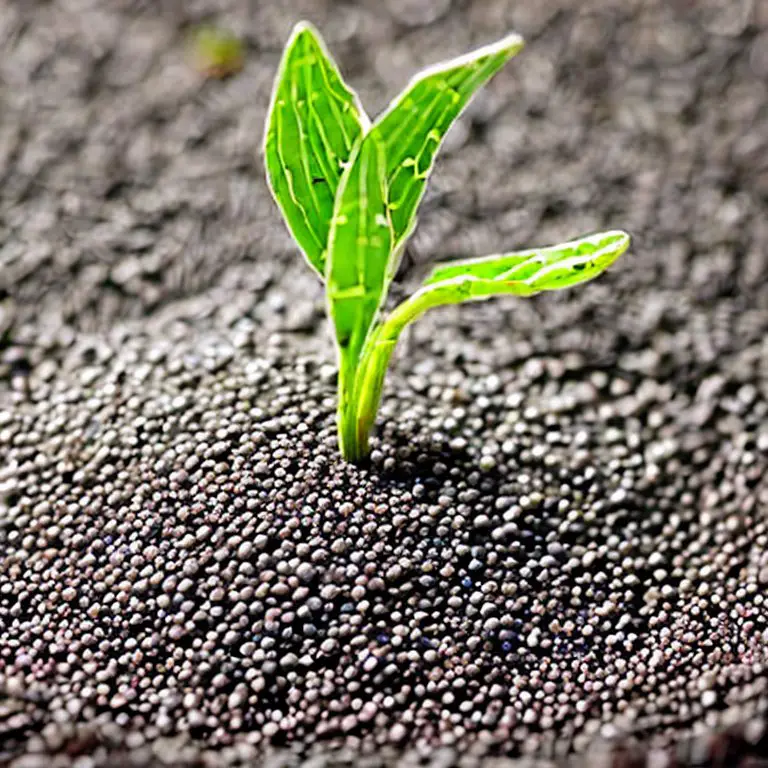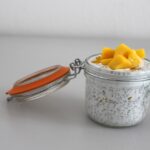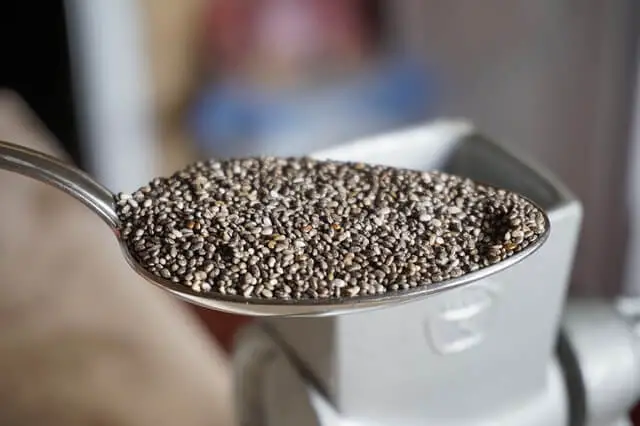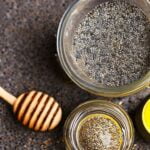
Chia seeds are small, oval-shaped seeds that are packed with nutrients and have become popular in recent years as a health food. They are also known for their ability to absorb water and become swollen, creating a gel-like consistency that can be added to foods and beverages.
However, there is a common misconception that chia seeds will grow in the stomach after they are eaten, leading to some confusion and curiosity about their effects in the body. In this article, we will explore the reality of chia seeds in the body and dispel the myth that they have the ability to grow inside the human stomach.
- What are Chia Seeds?
- Do Chia Seeds Grow In Your Stomach?
- How Long Does it Take to Digest Chia Seeds?
- Do Chia Seeds Cause Bloating?
- Are There Any Dangers with Chia Seeds?
- Are Chia Seeds Good for You?
- Final Thoughts
What are Chia Seeds?
Chia seeds are small, oval-shaped seeds that are native to Central and South America. They are a type of flowering plant in the mint family, and they have been used as a food source for centuries. Chia seeds are high in fiber and are a good source of protein, omega-3 fatty acids, and other nutrients. They are also rich in antioxidants and have been linked to a number of health benefits, including improved digestion, heart health, and blood sugar control.
Chia seeds are often sold as a health food and are used in a variety of dishes, including smoothies, baked goods, and as a topping for yogurt or oatmeal. They are also used as a plant-based alternative to eggs in vegan cooking. Chia seeds are known for their ability to absorb water and become swollen, creating a gel-like consistency that can be added to foods and beverages. They have a mild, nutty flavor and can be eaten whole or ground into a meal.
Do Chia Seeds Grow In Your Stomach?
There is a common misconception that chia seeds will grow in the stomach after they are eaten. This myth has likely been perpetuated by the seeds’ ability to absorb water and become swollen, leading some people to believe that they will continue to grow inside the body. However, this is not true. Chia seeds do not have the ability to germinate or grow inside the human body, and they will not sprout or grow into plants after being consumed.
When chia seeds are soaked in water or other liquid, they absorb the liquid and become swollen, creating a gel-like consistency. This is because chia seeds are high in fiber and have a thick, mucilaginous coating that allows them to absorb large amounts of water. The swollen seeds can then be added to foods or beverages, where they add a burst of hydration and a chewy texture.
However, despite their ability to absorb water and swell, chia seeds do not have the ability to germinate or grow inside the human body. They are simply a source of nutrients and fiber, and they do not have the ability to sprout or grow like other seeds.
So, what happens to chia seeds after you eat them? Like any other food, chia seeds are broken down and digested by the body. When chia seeds are consumed, they are first mixed with the digestive juices in the stomach. The seeds’ high fiber content allows them to absorb large amounts of water, which helps to move them through the digestive system. The seeds are then broken down by the body’s enzymes and absorbed into the bloodstream, where they can provide a range of health benefits.
Can Chia Seeds Grow in Your Intestine?
Chia seeds do not actually grow in the intestine. When chia seeds are consumed, they absorb water and expand in the stomach, which can help to promote a feeling of fullness and may assist with weight management.
However, as mentioned earlier, the chia seeds themselves do not germinate or grow inside the body.
How Long Does it Take to Digest Chia Seeds?
It typically takes the body about 6-12 hours to digest chia seeds. Chia seeds are high in fiber, which can help to slow down the digestive process and make you feel full for longer.
Do Chia Seeds Cause Bloating?
It is possible that chia seeds may cause bloating in some people, especially if they are consumed in large amounts or if the person is not used to consuming high-fiber foods. Chia seeds are high in fiber, which can help to support healthy digestion and bowel movements, but consuming too much fiber too quickly can sometimes lead to bloating, gas, and other digestive issues.
If you are not used to consuming chia seeds or other high-fiber foods, it is generally recommended to start with a small serving size and gradually increase your intake over time to allow your body to adjust. It’s also important to drink plenty of water when consuming chia seeds, as they can absorb a lot of fluid in the body and may cause digestive issues if not properly hydrated.
How Long Does Bloating From Chia Seeds Last?
The duration of bloating caused by chia seeds will vary from person to person and may depend on factors such as how much chia was consumed, the person’s individual tolerance for fiber, and whether the chia seeds were consumed with enough fluid to support proper digestion. In general, bloating caused by chia seeds or other high-fiber foods should resolve on its own within a few hours to a few days.
If bloating persists for a longer period of time or is accompanied by other symptoms such as severe abdominal pain, diarrhea, or vomiting, it is recommended to consult a healthcare professional for further evaluation.
Are There Any Dangers with Chia Seeds?
Chia seeds are generally considered to be a safe and healthy food, and they have been linked to a number of health benefits. However, like any food, they should be consumed in moderation as part of a balanced diet. Excessive consumption of chia seeds may cause digestive issues or other health problems. (See How Much Chia Seeds Should You Eat a Day. If you are trying to lose weight, you may want to increase this amount as mentioned at How Much Chia Seeds Per Day to Lose Weight)
Some possible risks and side effects associated with chia seeds include:
- Digestive problems: Chia seeds are high in fiber, and consuming large amounts of fiber can cause digestive issues such as bloating, gas, and abdominal discomfort. It is important to increase your fiber intake gradually to allow your body to adjust, and to drink plenty of water when consuming chia seeds to help them move through the digestive system.
- Allergic reactions: Some people may be allergic to chia seeds and may experience allergic reactions such as hives, difficulty breathing, or anaphylaxis when they consume them. If you have a history of allergies or have had allergic reactions to other seeds or nuts, you may be at an increased risk of an allergic reaction to chia seeds.
- Interactions with medications: Chia seeds may interact with certain medications, including blood thinners and diabetes medications. If you are taking any medications, it is important to speak with a healthcare provider before adding chia seeds to your diet.
- Pesticide contamination: Some chia seeds may be contaminated with pesticides, which may pose a risk to human health. It is important to choose chia seeds that have been certified as organic to minimize the risk of pesticide contamination.
Overall, chia seeds are a nutritious and healthy food that can be enjoyed as part of a balanced diet. You can learn how to eat chia seeds How to Consume Chia Seeds.
Are Chia Seeds Good for You?
Chia seeds are very good for you. Some of the health benefits associated with chia seeds include improved digestion, heart health, and blood sugar control.
Chia seeds are high in fiber, which helps to promote regular bowel movements and can help to prevent constipation. They are also a good source of protein, omega-3 fatty acids, and other nutrients, making them a nutritious and healthy food choice.
Final Thoughts
In conclusion, chia seeds are a nutritious and healthy food that can be added to a variety of dishes to boost their nutrient content. Despite the common misconception that they will grow in the stomach after being eaten, chia seeds do not have the ability to germinate or grow inside the human body.
Lance has been passionate about the plant-based diet and we have been following a whole food plant-based diet for over 5 years. We focus on health, natural healing, weight management, animal rights, and the health of the planet and environment by focusing on whole plant-based foods and sustainable practices.
Learn more at the About Me page and follow on social media at the links below.





